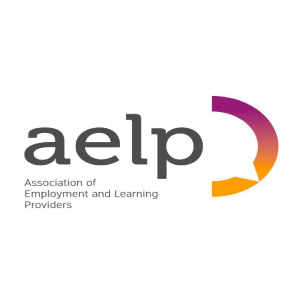
How to Support your Learners Remotely through Distance Learning
As we move once again to teaching online, you will be juggling educating your learners remotely whilst meeting your education provider’s targets and Ofsted’s requirements.
Below we look at some key considerations, things learnt from the last two lockdowns and online tools to help you plan your distance learning strategy and ensure learners continue their education journey outside of the classroom.
1. Supporting your Learners’ Well-being
As the pandemic continues it is important to be aware that some learners may struggle with their mental health and lose motivation to study. As a result, it is vital that we prioritise the well-being of our learners and ensure they know how to look after themselves, maintain a healthy lifestyle and spot signs that they might be struggling.
To support this, Ascentis have created a range of fully funded Short Online Qualifications (SOQs), mapped to the Ofsted Education Inspection Framework, designed to educate learners on topics including Mental Health & Well-being and Healthy Living. With our new e-Invigilation platform these qualifications can now be completed and assessed remotely, allowing learners to achieve and boost their confidence in their study skills at home.
In addition, all Ascentis customers have access to a free downloadable Mindfulness workbook resource entitled ‘Tips to Survive the Modern World – How to boost your Health, Well-being and Happiness’.
Our top tip is to have slightly bigger gaps between lessons to allow for short comfort breaks whilst learners are studying remotely. This will help them to concentrate during lessons, prevent them from becoming overwhelmed and support their well-being as they adjust to a new learning environment.
2. Encourage Learners to Read Whilst at Home
Research shows that people who enjoy reading and read regularly perform better across the curriculum. In addition, reading can boost writing and communication skills, as well as confidence within learners.
Encourage learners to read anything they can find at home – whether that be a book, a magazine or a comic – as this will help them to find a passion for reading and also offer them an escape from the pressures and confinements of lockdown, boosting their overall well-being.
3.Think Outside the Box
The move to online teaching has been a real learning curve for both teachers and learners. Online lessons are often teacher led and extra creativity is needed to achieve the level of group interaction that is possible face-to-face in the classroom. This need to think differently also applies to monitoring learners’ progress, with tutors no longer being able to walk around the classroom and physically see students’ work.
Furthermore, it can be much harder to keep learners motivated and inspired to study remotely. Many may be struggling to adjust or feeling isolated. As a result, confidence boosting activities are important. Teaching in ways that appeals to learners and using different learning styles through comics, music or poetry can help to boost confidence and engagement.
4. Make use of Online Tools
There are many online tools available to aid remote delivery whilst ensuring lessons are still interactive. Here are some popular free tools used by teachers:
Live Worksheets – allows you to transform regular printed worksheets into interactive ones. Learners can complete these online and send to their tutors for feedback. The site also includes a bank of worksheets that have been uploaded by other teachers which are available to use, saving your time.
Socrative – an education technology programme that allows you to set up quizzes, monitor results and keep an eye on progress. Some tutors use this by giving learners the same 20 questions over a 4 week period to check their skills and to see what knowledge they have retained. This encourages students to continue learning remotely and offers a quick and efficient way to monitor results and highlight any areas of improvements, influencing future lessons. Being online, it also improves your learners’ integration of digital skills.
Jamboard – has been voted the best online whiteboard by tutors for its ease of use at a recent conference.
Blendspace – this online platform allows you to create a series of interactive tiles a learner can click on. There is an option to search for online content, resources and videos to add into your tiles. It is a great way to create lessons in under 5 minutes and is easily embedded into your virtual learning environment.
Padlet – an interactive way to collate and view all your learners’ work in one place. It is a great platform to check work online and see who’s engaging. Learners can also use it as an online forum to support each other, get ideas from each other and gain instant feedback from tutors.
H5P – allows to you create online content that embeds into your virtual learning environment. On it you can create interactive activities and content from wordsearches, charts to virtual tours.
Quizlet – allows you to create a series of flashcards and online content for your learners to work through and learn. In addition, it can be used to test their knowledge through matching flashcards or used live in lessons as a competition. The activities created within Quizlet can either be emailed directly to the learners or added into your virtual learning environment.
Our on-demand webinar ‘Blending Learning – Tips for Success’ with Kevin Norman from the Lakes College explores some of the platforms mentioned above along with ideas for implementing online tools successfully. This webinar is now available free of charge by clicking here.
5. Create Personal Learning Experiences
Online Learning promotes a more personal learning experience. Many teachers we have spoken to have found that online learning can be more personal with smaller groups than in the classroom, providing a unique opportunity to get to know learners better and see any additional development needs outside their main area of study.
6. Use this time to prepare learners for their next steps
Previous lockdowns have proven that it is a great opportunity to support your learners’ personal development through encouraging them to learn the key skills required for life beyond education.
Enhance your learners’ skills remotely through Short Online Qualifications
Our Short Online Qualifications (SOQs) are ideal for remote learning and enable students to develop a diverse range of skills including personal, social, employability and independent learning. These cost-effective qualifications are eligible for ESFA funding and enable practical applications to the world of life, study and work. With online invigilation available and a total qualification time of between 10 and 31 hours depending on the subject, they are a great way to use any remaining AEB budget to support your learners’ education and development remotely.
Popular SOQs Right Now
Level 1 Award in Infection Control and Prevention
Level 1 Award in Personal Health and Well-Being
Level 1 Award in Understanding Employment, Business and Enterprise
Entry 3 Award in Internet Safety for IT Users
Level 1 Award in Internet Safety for IT Users
Entry 3 Award in Healthy Living for Well-Being & Mental Health
Level 1 Award in Awareness of Social Media and Online Safety
Entry 3 Award in Equality & Diversity
Entry 3 Award in Introduction to Safeguarding
Level 1 Award in Understanding Safeguarding for Work, Education and Life
Level 1 Award in Managing Personal Finance
*Click on the titles above to view the overview specification for each qualification.
Find Out More
If you would like to arrange a virtual meeting to discuss how we can support you during this time please click here, or if you have any questions regarding our qualifications please click here to contact us.


















